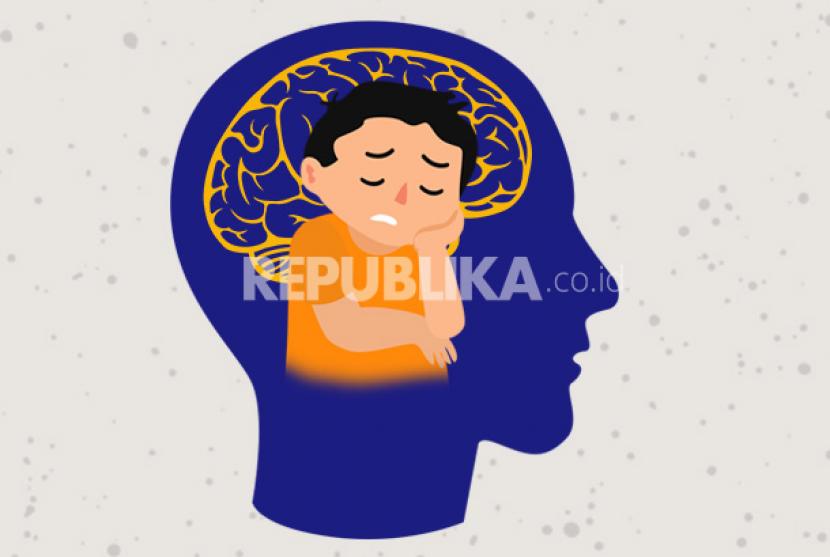In the UK, millions of people are reported to be struggling with mental health problems.
REPUBLIKA.CO.ID, JAKARTA — It has been almost two years since the World Health Organization (WHO) declared Covid-19 as a global health emergency. The world continues to grapple with its effects.
Amid the ongoing struggle to contain and eradicate the new corona virus, experts have observed a surge of problems mental health lately. Research published in the journal The BMJ showed that SARS-CoV-2 patients experienced mental health problems while battling the virus. For the large study, the team from St. Louis used data from 153,848 people (Covid-19 cohort) recorded by the Veterans Health Administration.
The researchers compared their information with a cohort of 5.6 million people with no evidence of viral infection (the contemporary cohort) and a cohort of 5.8 million people before the pandemic (historical cohort). All data used for this study came from people who had no mental health diagnosis or treatment for at least two years prior to their Covid-19 infection.
The average age of the participants was 61 years, and about 91 percent of them were men. The Covid-19 group was also further divided into two classifications, namely those who were hospitalized during the acute infection phase and those who were not.
After comparing all the numbers and analyzing the data, the researchers said that the Covid-19 group showed an increased risk of incident anxiety disorder, decreased incidence of neurocognitive and sleep disturbances. The group of patients hospitalized during the acute infectious phase also recorded the highest incidence of mental health disorders.
Specifically, Covid-19 patients were 39 percent more likely to have a depressive disorder. Then 35 percent had anxiety disorders a few months after infection, 38 percent were diagnosed with stress and adjustment disorders, and 41 percent had sleep disorders. disturbance. Overall, the Covid-19 group reported an 80 percent chance of developing neurocognitive problems, according to the New York Post.
In the UK, millions of people are reportedly struggling with mental health issues amid pandemic Covid-19 which is still ongoing. Most cases are awaiting professional help and treatment because specialist mental health services have become so overwhelmed with shocking cases of depression, anxiety, psychosis and other mental disorders.
About 1.6 million patients are currently awaiting specialized care, while another eight million could not be on the waiting list, the Guardian reported, citing data from the NHS Confederation and the Royal College of Psychiatrists.
The Chief Executive of the NHS Confederation, Matthew Taylor, said he was moving towards a new phase of the need to live with the coronavirus. But for a worrying number, the virus is leaving a legacy of poor and growing mental health that services are not equipped to handle adequately at this time.
The spike in mental health problems is not just happening in the US and UK. Other countries and regions have also reported an increase in cases.
In 2021, a study published in The Lancet showed that an additional 53.2 million cases of major depression and 76.2 million cases of anxiety were diagnosed worldwide due to the global health crisis. The head of research and development for the VA St Louis Health Care System, Dr Ziyad Al-Aly, said the figures they presented in the report should give an idea of the severity of the situation and the urgency to address it.
“We need to give them the care they need so this doesn’t turn into a much bigger crisis. Just because of the enormity of Covid-19 in the US, the numbers here really represent millions of people,” he told the St. Louis Post-Dispatch. Medical DailyMonday (21/2/2022).
Al-Aly, who also works as a clinical epidemiologist at Washington University, encourages everyone to stay healthy by exercising. Moreover, it connects with loved ones and reduces stress. She says it’s best to seek help and talk to a doctor about the symptoms you’re experiencing.
–

:strip_icc()/i.s3.glbimg.com/v1/AUTH_bc8228b6673f488aa253bbcb03c80ec5/internal_photos/bs/2020/j/5/CUFMZtRRCM4ZTRvMQoEA/img-3958.jpg)
